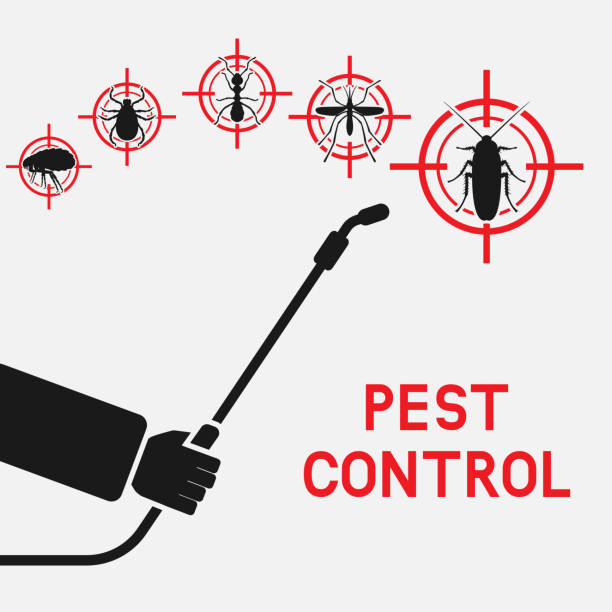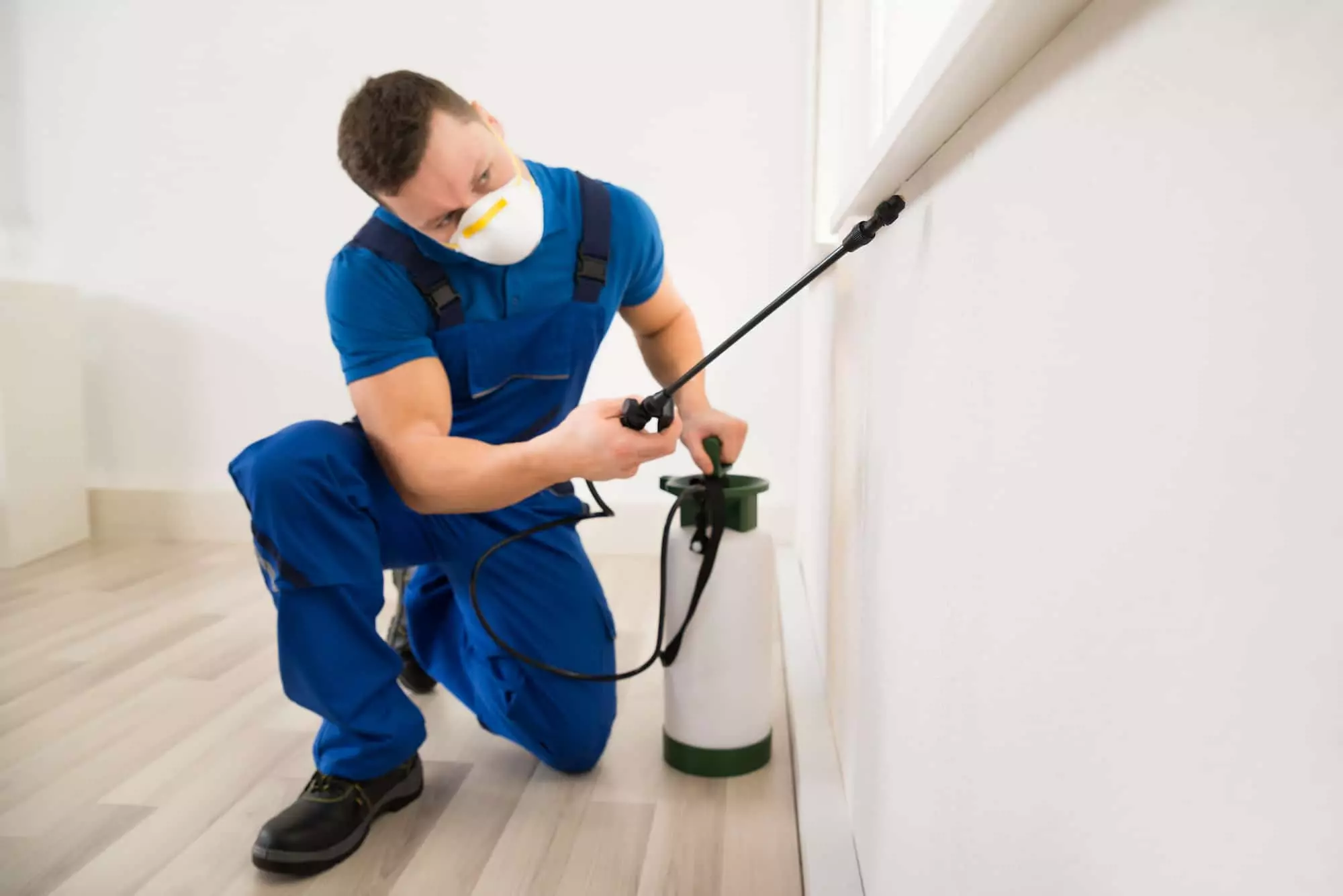Safe and Reputable Parasite Control for Lasting Security
Efficient insect monitoring calls for a multifaceted strategy that stabilizes ecological integrity with the demand for reliable parasite reductions. The subtleties of these techniques might not be quickly clear, triggering a better examination of the techniques that can lead to lasting pest control end results.
Recognizing Parasite Control Approaches
Insect control includes a variety of methods intended at managing and eliminating undesirable insects and rodents that can endanger both health and wellness and property. Understanding these methods is crucial for effective insect management.
The primary categories of insect control techniques consist of mechanical, biological, and chemical approaches. Mechanical methods include physical barriers and traps to avoid insect entrance and capture unwanted types. For example, utilizing screens on windows or utilizing sticky traps can substantially lower insect populations without introducing harmful substances.

Chemical parasite control is typically the most acknowledged technique, making use of pesticides to remove pests. These chemicals can be reliable yet need to be used with care to prevent unfavorable impacts on non-target species and the atmosphere.
Advantages of Eco-Friendly Solutions
Exactly how can green services change bug control techniques? The adoption of green bug control approaches provides many advantages, significantly improving the performance and safety of parasite management.

Another benefit is the favorable impact on regional biodiversity. Environmentally friendly services are designed to target specific parasites while maintaining useful insects and wild animals, advertising a balanced environment. This technique aligns with the growing customer need for sustainable methods, enhancing the track record of insect control suppliers.
Integrated Pest Administration Strategies
The application of environment-friendly solutions normally brings about the fostering of Integrated Pest Administration (IPM) techniques, which further improve bug control effectiveness. IPM is an all natural approach that combines numerous methods to manage insect populaces while lessening environmental effect. This method stresses using biological, cultural, mechanical, and chemical controls, guaranteeing a well balanced and sustainable technique of parasite monitoring.
One basic element of IPM is the extensive evaluation of pest task and ecological problems. By keeping track of pest populations and recognizing their life process, experts can carry out targeted interventions that disrupt the bug's habitat or lifecycle, reducing reliance on chemical pesticides. In addition, cultural methods such as plant rotation and habitat manipulation can substantially lessen bug establishment and recreation.
Another important component is the usage of biological control agents, such as beneficial pests or microbes, which can normally suppress pest populations. When chemical applications are essential, IPM focuses on making use of low-risk chemicals and uses them uniquely, lessening direct exposure to non-target microorganisms and people.
Including IPM techniques not just improves pest control performance yet also promotes a more secure environment, straightening with the expanding need for lasting techniques in parasite administration.
Safe Practices for House Owners
Comprehending the relevance of secure techniques in insect control can empower house owners to successfully handle parasite concerns while securing their health and wellness and the setting. Implementing preventive actions and safe approaches is vital in reducing direct exposure to damaging chemicals.
Property owners ought to first assess their environment for problems that draw in pests, such as standing food, water, and clutter waste. Consistently cleansing and securing entry factors can prevent parasites from attacking the home. Using natural deterrents, such as vital oils or diatomaceous earth, can give effective options to chemical pesticides.
When chemical therapies are needed, property owners need to go with items that are specifically labeled as risk-free for household use. It is important to adhere to application guidelines diligently to avoid too much exposure. Furthermore, making use of targeted treatments in areas where bugs are identified, rather than covering splashing, can substantially reduce chemical usage.
Last but not least, keeping open communication with parasite control specialists is vital. Property owners need to make inquiries regarding the safety of products used and demand eco-friendly options whenever possible. By adopting these secure methods, homeowners can produce a healthier living environment while effectively handling bug problems.

Tips for Long-Term Protection
Developing an insect administration approach that emphasizes lasting security can significantly enhance the efficiency of the secure practices formerly reviewed. To accomplish this, property owners should implement routine inspections of their residential property, focusing on hidden locations such as attics, basements, and crawl rooms. Early detection of pest activity is critical in preventing invasions from holding.
Furthermore, keeping a clean environment is crucial. This includes correct food storage space, promptly cleaning spills, and routinely taking care of waste. These practices lower attractants that attract pests into the home. Moreover, securing entrance points, such as cracks around doors and windows, can effectively block possible pest gain access to.
Landscaping must likewise be thought about; keeping plants cut and maintaining a range between plants and the home lessens concealing places for parasites. Utilizing natural deterrents, such as crucial oils or diatomaceous earth, can additionally discourage infestations without considering severe you can try these out chemicals.
Lastly, teaming up with a specialist parasite control service for periodic assessments can provide an extra layer of security. These specialists can use tailored suggestions and progressed treatments, guaranteeing that your home continues to be safeguarded against insects in the long term.
Verdict
In verdict, risk-free and dependable blog here pest control needs a multifaceted method that stresses environmentally friendly approaches and integrated parasite monitoring. By implementing all-natural deterrents, carrying out routine inspections, and keeping correct sanitation, home proprietors can considerably minimize parasite populaces while shielding advantageous insects and the environment. Partnership with expert parasite control services enhances the effectiveness of these methods, ensuring tailored services that provide long-term defense and peace of mind against future infestations.
Effective bug management needs a diverse approach that balances environmental integrity with the requirement for efficient pest reductions. The adoption of green parasite control approaches offers various benefits, significantly boosting the performance and safety and security of parasite administration.The execution of green options normally leads to the adoption of Integrated Pest Administration (IPM) strategies, which additionally enhance pest control effectiveness. exterminator coquitlam. By keeping an eye on pest populaces and identifying their life cycles, practitioners can carry out targeted treatments that interrupt the pest's environment or lifecycle, decreasing reliance on chemical pesticides.In final here thought, risk-free and trustworthy insect control calls for a multifaceted technique that stresses environmentally friendly approaches and incorporated parasite monitoring